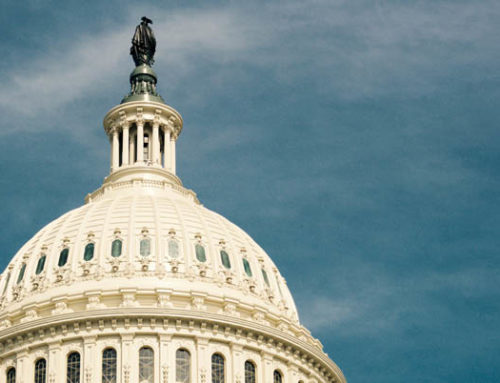With the primaries behind us (and run-offs quickly approaching), legislative activity has increased over the last two weeks, with several committees holding hearings to address their interim charges, covering quite a few significant issues, including an outlook on the 85th legislative session budget, an analysis of the current state of HHSC’s Medicaid Managed Care Program, compounded medications, ethics reform, as well as transportation infrastructure and imminent domain to mention few.
What follows is a summary of the most essential happenings and an elections update on the May 24th run-offs.
A Start to the 85th Budget: Senate Finance Report
The Senate Finance Committee met on Wednesday, March 30, 2016 to hear invited and public testimony regarding the following interim charges:
- Study the benefits, including the dynamic effects, of continuing to phase out the franchise tax. Consider alternate approaches to funding the Property Tax Relief Fund.
- Review the state’s current sales tax holiday structure and determine its economic benefit to the state. Evaluate and consider the merits of any potential expansion of the tax holiday either in the application of the sales tax exemption or the timing of the holiday.
- Review the budgeting format of other states, such as whether they use strategy-based budgeting, program-based budgeting, or some other approach and discuss the level of transparency with each approach. Review and make recommendations to reduce state debt liabilities, including state pension liability. Consider how to incentivize state agencies, boards, and commissions to identify and realize savings to taxpayers.
The LBB Dir. Ursula Parks informed the committee that this time next year, the Texas Budget will be well on its way through session. The LBB provided the following testimony to the committee:
- LBB: Budgeting Format: Texas and Other States
- LBB: Debt Summary
- LBB: Sales Tax Holiday: Other States and Incidence
In addition, there was also considerable discussion on the potentially adverse budgetary impact should Texas lose some major lawsuits, including challenges to the appointment of two “special masters” over the state’s foster care system, whether certain metal pipes and other equipment used in oil and gas extraction are exempt from the sales tax, and how “tangible personal property” is defined with respect to the franchise tax. Further complicating matters is the Texas Supreme Court’s anticipated school finance ruling, which is expected to be issued soon.
The pending case challenging the state’s school finance system could result in a determination that the total amount of funding the state is currently investing in public education is in adequate, forcing the Legislature to financially address any shortfall and could come with a huge price tag. While the eventual timing and financial impact of a court loss in the foster care litigation remains unclear at the moment, potentially becoming a non-factor during the making of the 2018-19 biennial budget, depending on whatever recommended reforms are advanced by the “special masters”. What is clear however, if the state loses the oil and gas equipment sales tax exemption ($4.4 billion exposure) and / or the tangible personal property lawsuit ($6 billion exposure), the revenue consequences to the state budget would be severe – estimated at a combined $10.4 billion without factoring in the costs of the school finance lawsuit.
Currently, it would not be unreasonable to anticipate a budget dominated 85th Regular Session. Unless market conditions change, the continued decline in oil and gas revenues and the slight downturn in sales tax collections, sets up some interesting session dynamics that no doubt will shape the tone and tenor on how many policy issues are approached, especially those initiatives with a fiscal note since state revenue will not be a plentiful. One thing to look for is the debate over the roughly $10.2 billion Rainy Day Fund, which the Republican dominated legislature has not been willing to use in the past, preferring cost cutting instead. There has also been talk among some legislators about exploring the possibility of increasing certain fees as a preferred approach to some sort of tax bill. We will learn more about the financial impact to the state budget over the course of the next several months, a situation that we will be watching very closely.
An Update on Health and Human Service Commission’s Medicaid Managed Care Program
This month the House Human Services Committee met to review the Health and Human Services Commission’s Medicaid managed care organizations policies and procedures including a review of quality initiatives:
- Study contract management and assess the Vendor Drug Program drug formularies and current function.
- Identify the savings achieved by moving Medicaid into managed care.
- Determine what mechanisms or policies could be modified or strengthened to encourage increased participation or retention of health care providers in the Medicaid managed care system.
See link for HHSC presentation on Medicaid Managed Care
Senate State Affairs – Imminent Domain
The issue of imminent domain or balancing policies to meet growing infrastructure challenges and protecting private property rights, which was issued as an interim charge by Lt. Governor Patrick to the Senate State Affairs Committee. The hearing, prompted mostly by the proposed high speed rail project, lasted roughly 3 hours and featured many witnesses, including academia, TPPF, TxDOT, Farm Bureau, Cattle Raisers, the Pipeline Association, AECT, TML, railroads, Texas Wildlife Association, and several attorneys and county judges.
Testimony and legislative comments appears slanted towards statutory changes that would “put more teeth” in connection with initial offers, beefing up a property owners rights disclosure in their protest packets, providing a more fair appraisal system that does not undercompensate landowners, reducing the time given when a property subject to eminent domain be developed (current 10 yr. to 5 yr.), special commission training requirements, use of some type of appraised value criteria of special damages (15% as in Florida’s law), addressing extending coverage of attorney and closing fees with property owners, and “in-person vs remote appraisals”. Statutory changes to the eminent domain law and process are certain to be introduced and fiercely debated next session.
House Business and Industry Committee – Workers Compensation
The House Committee on Business and Industry, Chaired by Rene Oliveira (D-Brownsville), met on several of their workers compensation interim charges, including Charge #7, concerning the designated doctor process, Charge 8, the adequacy of benefits for injured employees who qualify for Lifetime Income and Death Benefits, and the growing use and costs of compounded medications in the workers compensation system under the Committee’s jurisdictional oversight authority. The Committee heard invited testimony, including remarks by Commissioner Ryan Brannon, who said premiums are down 50% since 2005 and the subscriber rate is the highest since 2009.
There was extensive discussion the low hourly rate for attorneys in contested cases of $150, in which the current median hourly rate is $248 according to the State Bar. Commissioner Brannan said the agency is “vetting” changes to the hourly rate and such information is soon forthcoming. Non-subscriber or opt out requirements also received considerable attention from legislators, with Chairman Oliveira suggesting there are 500,000 workers without any plan, highlighting that construction companies are often non-subscribers, resulting in the taxpayers paying for injuries.
More narrowly, the Committee heard invited testimony on various aspects of the designated doctor process, including the education, monitoring, and evaluation of designated doctors, the sufficiency of the DWC’s regulatory authority and other issues associated with traveling designated doctors. In addition and as part of the Committee’s jurisdictional authority, Matt Zurek of the Workers Compensation Division provided and overview of the Texas closed formulary and recent trends and data concerning compounded drugs, including that the use and payment/reimbursement of compound drugs, which has risen 130% in recent years, ballooning to a price paid per compound from $316 to $646 since 2010.
Providing remarks on behalf of industry, Kevin Tribout of Helios, praised legislators for passing a closed drug formulary that has been emulated in at least four states and is being contemplated by seven to 10 others. However, Tribout also advised that the state’s regulatory structure governing compounded prescription drugs does not appear to be consistent with basic criteria set forth in the closed formulary that all medications meet the FDA approval criteria, rendering such prescriptions investigational at best. He further suggested that without clearer regulatory instruction that conforms compounded drugs to the requirements of the closed formulary, meaning the use of prior authorization for compounded medications, legitimate compounding pharmacies will continue to face risks of non-payment, potentially delaying or restricting access available to injured workers in genuine need of customized care.
Next session, legislators are expected to address a number of workers compensation related issues, something that we will watch very closely.
The Potential for Ethics Reform in the 85th Legislative Session?
This is a known fact, in Texas and elsewhere: It’s hard to get lawmakers to regulate themselves.
Gov. Abbott tried last session, right after he was elected governor, to squeeze new ethics laws out of the Legislature.
That first attempt ended badly. But look on the bright side: If the next Legislature fails to do anything, it will probably fail for completely different reasons.
At the end of that legislative session last summer, Abbott vetoed the ethics reforms he had asked for, citing a poison pill added late in the process. It was an odd moment of concurrence between him and some of the liberal and progressive groups that want to regulate the behavior of officials in Texas government.
The bill, which exempted officeholders’ spouses from disclosing their holdings and income (an amendment by Sen. Joan Huffman), screwed up the whole idea of having officeholders show their potential conflicts of interest to voters.
Abbott promised to revisit the issue, hoping that lawmakers won’t try again to hide their spouses’ business interests from public scrutiny as they did in the provision that won his veto.
Another piece of legislation died because lawmakers couldn’t come together on whether to disclose the sources of money given to politically active nonprofit organizations, “dark money.”
If you give to a campaign or to a plain political action committee, your contributions are reported to the state and put online so anyone can see what your beneficiaries received.
That kind of disclosure is based on the outrageous notion that donors might have reasons to give money to governmental decision-makers and that voters should be able to look and see whether the money contributed has anything to do with the decisions that get made.
The Texas House approved legislation last year that would have required groups to disclose their donors if the groups spent more than relatively small amounts on political campaigns. The argument on that side was that some individuals in the state cloak their efforts to influence elections by giving to groups that then do their bidding without revealing who they are.
House State Affairs Committee Chairman Byron Cook, R-Corsicana, led the charge for disclosure, keeping it in an important ethics bill in spite of a Senate threat that including dark money would kill the whole package. The Senate wasn’t alone; Abbott let it be known that he found that dark money regulation unconstitutional and that he had written as much in a ruling when he was on the Texas Supreme Court.
The dark money debate will return to the Legislature, however. Cook, who survived a re-election bid this month, promised another round. And he’s planning to skip the stop at Abbott’s office.
Cook is convinced voters are with him on the dark money question, so he’s proposing an amendment to the state constitution that would require disclosure of political contributors’ names that are now cloaked. Constitutional amendments don’t go to the governor, so Abbott wouldn’t get a say (other than as a regular voter). Cook will have to get more than two-thirds of the House and of the Senate to put the idea on the ballot.
The odds are against anybody pushing ethics laws in the Texas Legislature, unless voters come out of this election year tuned in — and insistent.
Railroad Commissioners Testify before the Texas House Energy Committee
This month, all three Railroad Commissioners provided invited testimony before the Texas House Energy Resources Committee.
The Commissioners updated committee members on the agency’s activities. The Railroad Commission of Texas has primary regulatory oversight over the state’s oil and gas exploration and production industry, intrastate pipeline safety, natural gas utilities, surface mining and alternative fuels safety.
Chairman David Porter said, “While we remain firmly committed to protecting the people of Texas and our natural resources, I am deeply concerned current price and activity levels in the energy industry could hurt the long-term sustainability of the Commission under our current funding structure. We must have a serious conversation with the Legislature about how the Railroad Commission is going to be funded moving forward if we’re going to continue to have the financial resources we need to do our job here in Texas and not let the federal government takeover by default.”
Commissioner Christi Craddick said, “Over the last few dynamic years for Texas energy production, we have adjusted our processes to stay ahead of our state’s fast-paced energy industry. The Commission continues to function under the mission of providing thorough, business-minded regulation and real-time response to issues surrounding public safety and the protection of our natural resources, and we become more efficient in this effort every day.”
Commissioner Ryan Sitton said, “I’m excited to continue working with the Legislature to ensure the Railroad Commission is doing the best job possible for the people of Texas. Our agency is committed to giving Texans confidence in the way our natural resources are produced. I know that the Legislature shares our commitment to protecting the environment and public while responsibly producing our natural resources, and that we will move forward together to ensure the Railroad Commission remains a high- caliber and high-performing state agency.”
| Texas Oil and Gas Production Statistics for January 2016 |
Production for January 2016 as reported to the Railroad Commission of Texas (Commission) is 76,063,179 barrels of crude oil and 612,602,068 Mcf (thousand cubic feet) of total gas from oil and gas wells. These preliminary figures are based on production volumes reported by operators and will be updated as late and corrected productions reports are received. Production reported to the Commission for the same time period last year, January 2015, was: 68,949,268 barrels of crude pol preliminarily, updated to a current figure of 88,816,120 barrels; and 607,631,634 Mcf of total gas preliminarily, updated to a current figure of 733,123,911 Mcf.
The Commission reports that in the last 12 months, total Texas reported production was 1.014 billion barrels of crude oil and 8.3 trillion cubic feet of total gas. Crude oil production reported by the Commission is limited to oil produced from oil leases and does not include condensate, which is reported separately by the Commission.
Texas preliminary January 2016 crude oil production averaged 2,453,651 barrels daily, compared to the 2,224,170 barrels daily average of January 2015.
Texas preliminary January 2016 total gas production averaged 19,761,357 Mcf a day, compared to the 19,601,020 Mcf daily average of January 2015.
Texas production in January 2016 came from 182,212 oil wells and 89,559 gas wells.
For additional oil and gas production statistics, visit the Commission’s website at http://www.rrc.texas.gov/oil-gas/research-and-statistics/production-data/texas-monthly-oil-gas-production/
TABLE 1 – January 2016 Texas Top Ten Oil Crude Oil Producing Counties Ranked by Preliminary Production
| RANK | COUNTY | CRUDE OIL (BBLS) |
| 1 | KARNES | 6,268,292 |
| 2 | LA SALLE | 4,692,548 |
| 3 | MIDLAND | 4,302,305 |
| 4 | DEWITT | 4,006,611 |
| 5 | MARTIN | 3,300,722 |
| 6 | UPTON | 3,240,671 |
| 7 | GONZALES | 3,128,463 |
| 8 | MCMULLEN | 3,088,081 |
| 9 | REEVES | 2,950,553 |
| 10 | ANDREWS | 2,930,913 |
TABLE 2 – January 2016 Texas Top Ten Total Gas (Gas Well Gas & Casinghead) Producing Counties Ranked by Preliminary Production
| RANK | COUNTY | TOTAL GAS (Mcf) |
| 1 | WEBB | 58,883,030 |
| 2 | TARRANT | 44,559,867 |
| 3 | PANOLA | 26,574,219 |
| 4 | DIMMIT | 23,006,630 |
| 5 | JOHNSON | 20,546,741 |
| 6 | WISE | 18,806,159 |
| 7 | DEWITT | 18,304,013 |
| 8 | DENTON | 17,140,250 |
| 9 | KARNES | 16,890,901 |
| 10 | LA SALLE | 14,528,837 |
TABLE 3 – January 2016 Texas Top Ten Total Condensate Producing Counties Ranked by Preliminary Production
| RANK | COUNTY | CONDENSATE (BBLS) |
| 1 | DIMMIT | 1,977,483 |
| 2 | WEBB | 1,427,916 |
| 3 | KARNES | 928,481 |
| 4 | DEWITT | 922,295 |
| 5 | CULBERSON | 729,815 |
| 6 | LIVE OAK | 503,221 |
| 7 | REEVES | 452,483 |
| 8 | WHEELER | 275,086 |
| 9 | LA SALLE | 228,701 |
| 10 | LOVING | 215,169 |
Lawmakers Mull New Funding Deal For Fraud Cases
State insurance regulators would need a big infusion of cash to handle injured worker fraud investigations if the Texas Legislature puts an end to the controversial funding deal between Travis County and the largest provider of workers’ compensation insurance, officials said Wednesday.
The Texas House Committee on Insurance is studying a potential replacement of the agreement that has allowed Texas Mutual Insurance Company to pay the Travis County district attorney’s office to prosecute its fraud cases. The legislative study, ordered by House Speaker Joe Straus, R-San Antonio, comes in the wake of a series of reports by The Texas Tribune and the Austin American-Statesman, R-San Antonio, comes in the wake of that raised questions about the relationship between government prosecutors and Texas Mutual.
Responding to a flood of criticism about the unusual deal late last year, state and local officials in Austin announced a dramatic restructuring of Travis County’s workers’ compensation fraud unit and implemented new safeguards against potential abuse and conflicts of interest. But Texas Mutual still pays for the unit and officials said a permanent replacement would require state legislation.
Testifying before the committee at the Capitol Wednesday, state regulators said a fix would also require financial help from state lawmakers, who convene in regular session early next year. Already, the Texas Department of Insurance’s Division of Workers’ Compensation doesn’t have enough resources to investigate all of the fraud referrals it gets from other workers’ compensation insurers, they said.
Division head Ryan Brannan pointed out that it only had five allocated investigators pursuing workers’ compensation fraud cases. By contrast, he said Texas Mutual had over 20 investigators and support staff looking into fraud perpetrated against the company.
“If there’s an option secured by the Legislature and the contract is allowed to expire then the Texas Department of Insurance would be unable to handle the additional caseload of fraud referrals from Texas Mutual,” Brannan said. “We do not currently have the resources to take on 40 percent of the marketplace.”
Texas Mutual, which is required under law to act as the workers’ compensation insurer of last resort, has authorized payments to the Travis County district attorney’s office of more than $4.7 million to have its fraud cases prosecuted since 2001, the Tribune and Statesman found. Under the deal, private investigators working for Texas Mutual reported their cases directly to those prosecutors.
Beginning in January, a retooled contract has required Texas Mutual to route its referrals to the Texas Department of Insurance, which then refers cases to prosecutors as appropriate. That’s more in line with what other insurance companies do now.
Travis County is also free now to use the unit to pursue fraud cases referred by other companies. State Sen. Kirk Watson, D-Austin, helped spearhead the contract changes after state and local officials expressed concerns about the potential for a conflict of interest between a privately held company and government prosecutors.
“We’re going to put an independent eye on whatever’s referred to us,” Insurance Commissioner David Mattax said. “The distinction here is that prosecutors in Travis County are being paid by Texas Mutual. So that’s sort of the issue, is what’s going to happen when that contract goes away.”
The current contract is set to expire on Sept. 1, 2017, which is usually when new laws passed by the Texas Legislature take effect. Lawmakers are just beginning to discuss what an overhaul to the state’s insurance fraud-fighting apparatus would look like.
Texas Mutual Senior Vice-President Terry Frakes told the committee that he was satisfied with the current arrangement but would gladly accept a restructuring of the deal as long as the Legislature continues to make the investigation and prosecution of workers’ compensation fraud a priority.
“I think (insurance regulators) have some concerns about their current ability in terms of both appropriations and (full time employees) to do the job,” Frakes said. “If it’s the will of the Legislature to change the arrangement, I hope that the necessary funding accompanies that change.”
Elections Update
It’s been one month since the March 1st primary where we saw some surprise results as well as many run-offs that will be decided on May 24th. Provided below is a list of the run-off races and what each candidate’s financial report revealed as to cash on hand, contributions, and expenditures.
REPUBLICAN PARTY
Statewide
| Railroad Commission | % Primary | Cash on Hand | Contributions | Expenditures |
| Gary Gates | 28% | $81,442 | $0 | $1,041,131 |
| Wayne Christian | 20% | $1,345 | $5,616 | $35,075 |
| Criminal Court of Appeals 2 | % Primary | Cash on Hand | Contributions | Expenditures |
| Mary Lou Keel | 39% | $37,801 | $1,910 | $3,269 |
| Ray Wheless | 35% | $33,018 | $28,100 | $30,003 |
| Criminal Court of Appeals 5 | % Primary | Cash on Hand | Contributions | Expenditures |
| Scott Walker | 41% | $500 | $0 | $0 |
| Brent Webster | 21% | $3,363 | $20,835 | $32,164 |
Senate
| Senate District 1 | % Primary | Cash on Hand | Contributions | Expenditures |
| Bryan Hughes | 48% | $153,393 | $251,296 | $436,251 |
| David Simpson | 21% | $16,611 | $65,361 | $63,687 |
| Senate District 1 | % Primary | Cash on Hand | Contributions | Expenditures |
| Bryan Hughes | 48% | $153,393 | $251,296 | $436,251 |
| David Simpson | 21% | $16,611 | $65,361 | $63,687 |
| Senate District 24 | % Primary | Cash on Hand | Contributions | Expenditures |
| Susan King | 27% | $224,425 | $22,775 | $729,100 |
| Dawn Buckingham | 25% | $15,134 | $77,918 | $625,731 |
House
| House District 5 | % Primary | Cash on Hand | Contributions | Expenditures |
| Cole Hefner | 46% | $20,579 | $27,477 | $63,378 |
| Jay Misenheimer | 27% | $78,718 | $24,377 | $54,309 |
| House District 18 | % Primary | Cash on Hand | Contributions | Expenditures |
| Keith Strahan | 28% | $11,491 | $44,724 | $44,779 |
| Ernest Bailes | 26% | $30,482 | $18,250 | $52,830 |
| House District 33 | % Primary | Cash on Hand | Contributions | Expenditures |
| John Keating | 38% | $116,336 | $61,550 | $124,150 |
| Justin Holland | 33% | $306,760 | $83,534 | $39,523 |
| House District 54 | % Primary | Cash on Hand | Contributions | Expenditures |
| Scott Cosper | 42% | $66,133 | $32,331 | $36,347 |
| Austin Ruiz | 37% | $35,762 | $47,120 | $31,904 |
| House District 64 | % Primary | Cash on Hand | Contributions | Expenditures |
| Lynn Stucky | 42% | $29,013 | $26,000 | $52,549 |
| Read King | 30% | $11,146 | $78,585 | $38,829 |
| House District 73 | % Primary | Cash on Hand | Contributions | Expenditures |
| Doug Miller – Incumbent | 44% | $120,463 | $279,682 | $544,845 |
| Kyle Biedermann | 40% | $2,089 | $60,535 | $83,713 |
| House District 128 | % Primary | Cash on Hand | Contributions | Expenditures |
| Biscoe Cain | 48% | $12,740 | $40,323 | $53,962 |
| Wayne Smith – Incumbent | 44% | $370,774 | $230,320 | $205,529 |
State Board of Education
| ED9 | % Primary | Cash on Hand | Contributions | Expenditures |
| Mary Lou Bruner | 48% | $2,948 | $1,300 | $3,872 |
| Keven Ellis | 31% | $4,902 | $9,915 | $20,521 |
Congress
| Congressional District 15 | % Primary | Cash on Hand | Contributions | Expenditures |
| Tim Westley | 45% | $24 | $3,597 | $3,442 |
| Ruben Villarreal | 31% | $1,726 | $12,846 | $19,160 |
| Congressional District 18 | % Primary | Cash on Hand | Contributions | Expenditures |
| Lori Bartley | 34% | $42 | $186 | $269 |
| Reggie Gonzales | 33% | $0 | $1,425 | $814 |
| Congressional District 19 | % Primary | Cash on Hand | Contributions | Expenditures |
| Glen Robertson | 27% | $63,063 | $82,155 | $489,862 |
| Jodey Arrington | 26% | $98,194 | $69,790 | $160,821 |
DEMOCRATIC PARTY
Statewide
| Railroad Commission | % Primary | Cash on Hand | Contributions | Expenditures |
| Grady Yarbrough | 40% | $0 | $0 | $10,000 |
| Cody Garrett | 35% | $4,994 | $0 | $0 |
House
| House District 27 | % Primary | Cash on Hand | Contributions | Expenditures |
| Ron Reynolds – Incumbent | 48% | $8,968 | $38,615 | $26,766 |
| Angelique Bartholomew | 24% | $4,699 | $12,319 | $32,266 |
| House District 120 | % Primary | Cash on Hand | Contributions | Expenditures |
| Barbara Gervin-Hawkins | 26% | $13,975 | $9,544 | $17,646 |
| Mario Salas | 23% | $340 | $11,017 | $10,955 |
| House District 139 | % Primary | Cash on Hand | Contributions | Expenditures |
| Kimberly Willis | 32% | $1,591 | $3,884 | $2,053 |
| Jarvis Johnson | 28% | $24,980 | $1,400 | $9,495 |
State Board of Education
| ED6 | % Primary | Cash on Hand | Contributions | Expenditures |
| Jasmine Jenkins | 44% | $4,058 | $9,837 | $5,780 |
| Dakota Carter | 33% | $628 | $585 | $1,056 |
Congress
| Congressional District 15 | % Primary | Cash on Hand | Contributions | Expenditures |
| Vicente Gonzalez | 42% | $300,366 | $6,500 | $478,679 |
| Sonny Palacios | 19% | -$22,654 | $56,135 | $112,789 |






